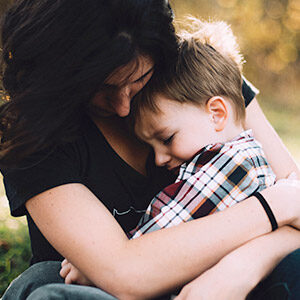Foster care is not always forever. Children are placed in foster care for all different reasons. Sometimes their foster care stay is only brief; other times, it can be for a more extended period. Research shows that maintaining a bond between the children and their birth family is important for their mental and physical well-being, including developing a sense of identity.
Reunification refers to returning a child or young person to the care of their parents or other family members, when it is safe to do so. The Department for Child Protection and the Court make reunification decisions after considering the child’s safety, well-being and best interests. Foster carers play a vital role in facilitating and supporting the child through this process.
The importance of reunification
It is widely accepted that maintaining a strong connection to family helps children feel safe and secure. In South Australia, every attempt is made to strengthen families so children can return home safely.
Separating families has negative impacts on all family members and the community. Research shows that removing children from their homes, even when necessary, interferes with their development and sense of identity.
So, when a child or young person comes into foster care, the aim is to return them to the care of their parents as soon as it is safe and practicable.
Supporting a child through reunification
Foster carers play an important role in the reunification process. During the period of care, children develop a bond with their carer, and carers gain valuable insights about the child in care. They come to know the child very well, and they know what makes them feel safe and what might trigger feelings of unease or anxiety. Foster carers assist the child or young person to make sense of their experience, whilst building a safe relationship built on trust, empathy, understanding, stability and consistency.
Reunifying a child with their birth family is a process, not a one-off event. It is about helping the child to integrate back into a family environment, which may have changed significantly since they were last there. Foster carers are key in assisting positive, regular and ongoing contact to support the process of reunification.
There is a range of ways foster carers can help a child or young person feel safe through this transition. Here are just a few strategies:
- Talk openly and often about reunification. An open dialogue about the possibility of the child living with their family again is essential to preparing for reunification.
- Help them stay connected. Encourage the child to talk about their birth family to help them maintain a connection to their family and roots. Ask them to share memories and stories about their birth family and what they will look forward to when they get to live with them again.
- Be prepared for reunification decisions. Sometimes, reunification decisions can come suddenly as a result of a court hearing. Stay on top of court dates, by discussing this at Care Team Meetings, so you know when it may happen.
- Collect photos and other memorabilia of your time together. It’s never too early to start, and they will be a comfort for both the carers and the children.
- Think about how you will say goodbye before the time comes so you can make it special.
- Change can be challenging for children and carers. Children may experience a range of emotions about being reunified with their birth family. Be empathetic and try to remain positive about the transition.
Talk to your care team for more information about how you can best support your foster child through this process.
Who supports the carers?
Each of our foster carers has a dedicated foster Carer Support Practitioner to assist them with all aspects of foster caring.
Each placement support plan is tailored to the specific needs of the child and the household. In the reunification program, support practitioners are regularly in touch, in addition to fortnightly in-home visits, with the carers to help with practical matters as well as their emotional well-being.
Tips for saying goodbye
As a foster carer, you will undoubtedly develop a bond with the children in your care and saying goodbye might be hard. However, you can take comfort in knowing that the best outcome for them has been achieved and that you have played a positive role in their life.
First and foremost, remember why you became a foster carer. The reunification foster carer’s role is to keep children safe until their families can care for them again. Although your care for a child or young person is temporary, that doesn’t mean it isn’t important.
Celebrate with the child. When a reunification decision is made, mark the occasion in a positive way. Having an afternoon or other ritual can help them feel that you won’t forget them. Be sure to take photos that you can both keep to remember the occasion.
Take time to grieve. Saying goodbye is always hard, and it is normal to have feelings of grief or emptiness when a foster placement ends. Self-care is essential for foster carers, whether it is reaching out to loved ones, taking time for yourself or taking a break from further foster placements.
Ask for help. Foster carers are not expected to go through this alone; we are here to help you. So be sure to reach out and debrief with your support practitioner, other carers at carer connection mornings, engage in grief and loss discussions with your support practitioner or access Centacare’s EAP counselling service.
Interested in becoming a foster carer?
If you think you’d like to make a difference in a young person’s life by providing a nurturing, secure and safe home, whilst working towards reunification, we’d love to hear from you.
For further information or to register your interest, please phone our Foster Care team on 8159 1400 or email fostercareenquiries@centacare.org.au


